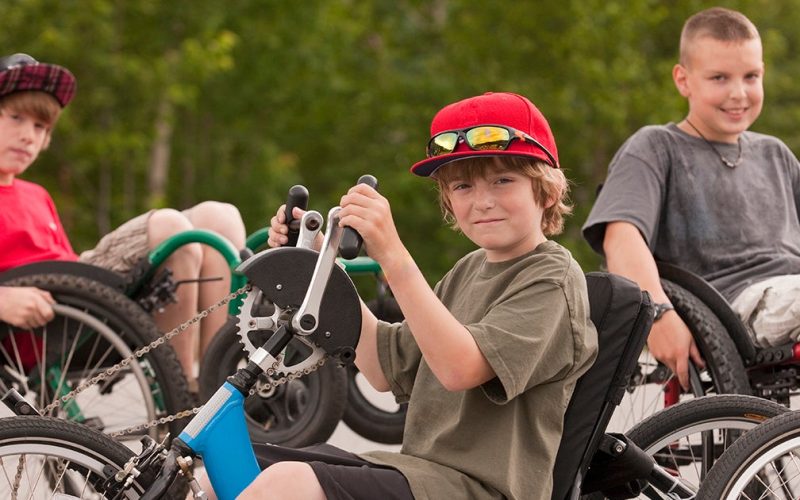Children and young adults with limited walking abilities often use a manual wheelchair in daily life. It is important that these children learn to drive and maneuver independently and therefore become much more independent at a young age and have more opportunities to participate in society. This is shown in research conducted by Marleen Sol, a pediatric physiotherapist and researcher at the Rehabilitation Knowledge Center in Utrecht.
In the Netherlands, children with physical disabilities, such as cerebral palsy or spina bifida, are supported by a paediatric rehabilitation team to stimulate their health and development. Many children are given a wheelchair at an early age to use indoors and/or outdoors. Marleen: “Although exercising and learning to use tools (such as a splint or prosthesis) are important parts of a rehabilitation treatment, learning to drive and maneuver independently is not yet self-evident. And that should be just as important, because we see that developing wheelchair skills can increase self-reliance. This allows these children to do what their friends can also do: play outside and go out independently.”
In order to guide and support children and young people, it is important properly start mapping wheelchair skills. Sofar little attention has been paid to measuring and training wheelchair skills in children. Marleen has developed a wheelchair skills test that includes driving forwards, slalom and climbing up and down hills. She also made a questionnaire about self-confidence in using a wheelchair, aimed at children. It is important to measure both wheelchair skills and self-confidence in the ability and courage to use the wheelchair at different stages of development. Children and adolescents who had attended a wheelchair skills and fitness trainingprogram became more active, skilled, fitter, and gained more self-confidence in both the short and long term.
Tess (age 16, spina bifida) was 18 months when she received her first wheelchair. “Wheelchair skills training is very important for me, I learned a lot there. How to handle my wheelchair, but especially that I was able to think in terms of possibilities. I can really do a lot with my wheelchair and that brings a sense of freedom. Not being dependent on someone else anymore and just go wherever you want.”
According to Marleen it is important to develop awareness of the possibilities in a wheelchair in children and their parents or carers from an early age on. “This is also important in the training of care professionals, after all, they guide the children and their parents. For example in choosing the right wheelchairs and practicing wheelchair skills.” To achieve this, she will implement wheelchair skills in pediatric rehabilitation in follow-up research.
Pediatric physiotherapist Marleen Sol is a researcher at the Utrecht Rehabilitation Knowledge Center (a collaboration between UMC Utrecht and De Hoogstraat Rehabilitation) and Hogeschool Utrecht, lectorate Lifestyle and Health. Marleen Sol will receive her doctorate on 7 July. She pleads for structural attention to learning wheelchair skills in children.
